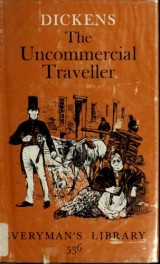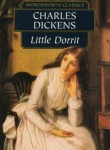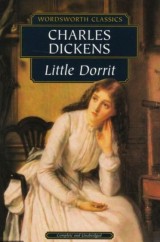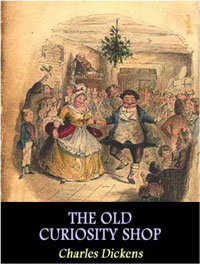February 16, 2021
 The Uncommercial Traveller by our pal Charles Dickens is not a book one hears about enough – heck, even a Dickens head like me hadn’t had it in his hands until recently. But I scored a copy, which isn’t really that hard, though said copy is like a print-to-order thing, with no, like TOC, or copyright notes, or title page, anything. Which is fine, and definitely better than no copy at all! If you don’t know (and I’ll admit, I didn’t know much until I got said copy), The Uncommercial Traveller is a collection of personal essays, or literary sketches as they say, that Dickens originally published in a journal he founded called “All the Year Round” (if anyone wants to gift me a few original copies of that, go right ahead), and really involves the main character (Dickens, that is, as far as it goes) writing about his wanderings around London, the UK, and (in a dreamy sort-of way and regular ways) Europe, including visiting the site of a famous shipwreck, strolling the city in the wee hours due to insomnia, mapping out the haunts of neighborhood dogs, visiting the town he grew up in, and more. They are all written in the Dickensian style, with wit, insights that remain relevant today, details rendered through his particular peculiar eye, and all. He stops at pubs and hotels and other watering holes, too, as he loved such, and drinks, so it makes for good Cocktail Talk-ing (oh, don’t miss all the past Charles Dickens Cocktail Talks, as there are many jolly ones). I’m not sure yet how many Uncommercial Traveller Cocktails Talks I’ll have yet, but you can bet they’ll be more! We’re going to start at one of those neighborhood public houses, one attended by theatre-goers during intermission. And while it does have drinks! It’s really an ode to the sandwich. But I love sandwiches! Especially with drinks.
The Uncommercial Traveller by our pal Charles Dickens is not a book one hears about enough – heck, even a Dickens head like me hadn’t had it in his hands until recently. But I scored a copy, which isn’t really that hard, though said copy is like a print-to-order thing, with no, like TOC, or copyright notes, or title page, anything. Which is fine, and definitely better than no copy at all! If you don’t know (and I’ll admit, I didn’t know much until I got said copy), The Uncommercial Traveller is a collection of personal essays, or literary sketches as they say, that Dickens originally published in a journal he founded called “All the Year Round” (if anyone wants to gift me a few original copies of that, go right ahead), and really involves the main character (Dickens, that is, as far as it goes) writing about his wanderings around London, the UK, and (in a dreamy sort-of way and regular ways) Europe, including visiting the site of a famous shipwreck, strolling the city in the wee hours due to insomnia, mapping out the haunts of neighborhood dogs, visiting the town he grew up in, and more. They are all written in the Dickensian style, with wit, insights that remain relevant today, details rendered through his particular peculiar eye, and all. He stops at pubs and hotels and other watering holes, too, as he loved such, and drinks, so it makes for good Cocktail Talk-ing (oh, don’t miss all the past Charles Dickens Cocktail Talks, as there are many jolly ones). I’m not sure yet how many Uncommercial Traveller Cocktails Talks I’ll have yet, but you can bet they’ll be more! We’re going to start at one of those neighborhood public houses, one attended by theatre-goers during intermission. And while it does have drinks! It’s really an ode to the sandwich. But I love sandwiches! Especially with drinks.
Between the pieces, we almost all of us went out and refreshed. Many of us went the length of drinking beer at the bar of the neighbouring public-house, some of us drank spirits, crowds of us had sandwiches and ginger-beer at the refreshment-bars established for us in the Theatre. The sandwich—as substantial as was consistent with portability, and as cheap as possible—we hailed as one of our greatest institutions. It forced its way among us at all stages of the entertainment, and we were always delighted to see it; its adaptability to the varying moods of our nature was surprising; we could never weep so comfortably as when our tears fell on our sandwich; we could never laugh so heartily as when we choked with sandwich; Virtue never looked so beautiful or Vice so deformed as when we paused, sandwich in hand, to consider what would come of that resolution of Wickedness in boots, to sever Innocence in flowered chintz from Honest Industry in striped stockings. When the curtain fell for the night, we still fell back upon sandwich, to help us through the rain and mire, and home to bed.
–Charles Dickens, The Uncommercial Traveller
Tags: bars public house, beer, Charles Dickens, Cocktail Talk, Dickens, ginger beer, Part I, sandwich, spirits, The Uncommercial Traveller
Posted in: Bars, beer, Charles Dickens, Cocktail Talk
January 26, 2021
 Well, it’s sad day in a way (a small sadness), as we’re at the last of our cocktail talks from the Dickens classic Little Dorrit. It’s funny to phrase it as such, “Dickens classic” that is, being that I think all Dickens books are classics. We could go on about that, but I don’t want to get in the way of our final quote any more than to say, be sure that you don’t miss Little Dorrit Cocktail Talks Part I, Part II, and Part III, as well as reading all past Charles Dickens Cocktail Talks – but maybe read the below from Little Dorrit first. In it, we return to one of my favorite characters in the book, Flora, who may be the most digression-filled character in all of Dickens, which is saying something, as he liked to tangent in perhaps the best way yet in Western Lit. If she’s not, she’s up there! And, she likes a little tipple, too, which the below has, if not much of the digressionary tactics you sometimes get with Flora. But a good way to end our tipsy tour through Little Dorrit, which I’ve certainly enjoyed!
Well, it’s sad day in a way (a small sadness), as we’re at the last of our cocktail talks from the Dickens classic Little Dorrit. It’s funny to phrase it as such, “Dickens classic” that is, being that I think all Dickens books are classics. We could go on about that, but I don’t want to get in the way of our final quote any more than to say, be sure that you don’t miss Little Dorrit Cocktail Talks Part I, Part II, and Part III, as well as reading all past Charles Dickens Cocktail Talks – but maybe read the below from Little Dorrit first. In it, we return to one of my favorite characters in the book, Flora, who may be the most digression-filled character in all of Dickens, which is saying something, as he liked to tangent in perhaps the best way yet in Western Lit. If she’s not, she’s up there! And, she likes a little tipple, too, which the below has, if not much of the digressionary tactics you sometimes get with Flora. But a good way to end our tipsy tour through Little Dorrit, which I’ve certainly enjoyed!
‘You see, my dear,’ said Flora, measuring out a spoonful or two of some brown liquid that smelt like brandy, and putting it into her tea, ‘I am obliged to be careful to follow the directions of my medical man though the flavour is anything but agreeable being a poor creature and it may be have never recovered the shock received in youth from too much giving way to crying in the next room when separated from Arthur, have you known him long?’
— Charles Dickens, Little Dorrit
January 19, 2021
 Hello Dickens fans (which I hope is everyone)! And let me just jump right in to our third quote from the immortal Dickens book Little Dorrit. Well, first, let me point you to the Little Dorrit Part I Cocktail Talk, and the Little Dorrit Part II Cocktail Talk, and for that matter, all the Charles Dickens Cocktail Talks, in case you want or get a little more book story, or read more quotes, or both! Here, we have a bit about sherry (our second sherry from the book, but it was rather popular at the time) and a bit about a character in the book that seems serene and such, but is actually a bit of a villain. There are layers of villainy in Dickens as in life, and that’s all I’m gonna say cause really, you should read the book! After the below quote of course.
Hello Dickens fans (which I hope is everyone)! And let me just jump right in to our third quote from the immortal Dickens book Little Dorrit. Well, first, let me point you to the Little Dorrit Part I Cocktail Talk, and the Little Dorrit Part II Cocktail Talk, and for that matter, all the Charles Dickens Cocktail Talks, in case you want or get a little more book story, or read more quotes, or both! Here, we have a bit about sherry (our second sherry from the book, but it was rather popular at the time) and a bit about a character in the book that seems serene and such, but is actually a bit of a villain. There are layers of villainy in Dickens as in life, and that’s all I’m gonna say cause really, you should read the book! After the below quote of course.
The Patriarchal state, always a state of calmness and composure, was so particularly serene that evening as to be provoking. Everybody else within the bills of mortality was hot; but the Patriarch was perfectly cool. Everybody was thirsty, and the Patriarch was drinking. There was a fragrance of limes or lemons about him; and he made a drink of golden sherry, which shone in a large tumbler as if he were drinking the evening sunshine. This was bad, but not the worst. The worst was, that with his big blue eyes, and his polished head, and his long white hair, and his bottle-green legs stretched out before him, terminating in his easy shoes easily crossed at the instep, he had a radiant appearance of having in his extensive benevolence made the drink for the human species, while he himself wanted nothing but his own milk of human kindness.
–Charles Dickens, Little Dorrit
January 12, 2021
 As mentioned just two weeks ago right here on the Spiked Punch blog, we’re going into a little turn through the Dickens’ classic Little Dorrit, a book I hadn’t featured here (some how?) until just that post two weeks ago (by the way, don’t miss the Little Dorrit Cocktail Talk Part I, so you can catch a little more about the book, and be sure to see all the Dickens Cocktail Talks to learn more about my love for Dickens and his love of drinks, pubs, drinkers, and dogs). In this particular quote, there’s a character named by his profession (which happens some in this book, to swell effect), and some sherry (which also happens), which is turned into a cocktail of sorts, which I am all for, as, I hope, are you.
As mentioned just two weeks ago right here on the Spiked Punch blog, we’re going into a little turn through the Dickens’ classic Little Dorrit, a book I hadn’t featured here (some how?) until just that post two weeks ago (by the way, don’t miss the Little Dorrit Cocktail Talk Part I, so you can catch a little more about the book, and be sure to see all the Dickens Cocktail Talks to learn more about my love for Dickens and his love of drinks, pubs, drinkers, and dogs). In this particular quote, there’s a character named by his profession (which happens some in this book, to swell effect), and some sherry (which also happens), which is turned into a cocktail of sorts, which I am all for, as, I hope, are you.
Bishop said that when he was a young man, and had fallen for a brief space into the habit of writing sermons on Saturdays, a habit which all young sons of the church should sedulously avoid, he had frequently been sensible of a depression, arising as he supposed from an over-taxed intellect, upon which the yolk of a new-laid egg, beaten up by the good woman in whose house he at that time lodged, with a glass of sound sherry, nutmeg, and powdered sugar acted like a charm. Without presuming to offer so simple a remedy to the consideration of so profound a professor of the great healing art, he would venture to inquire whether the strain, being by way of intricate calculations, the spirits might not (humanly speaking) be restored to their tone by a gentle and yet generous stimulant?
–Charles Dickens, Little Dorrit
Tags: a gentle and yet generous stimulant, Charles Dickens, Cocktail Talk, egg, Little Dorrit, nutmeg, Part II, powdered sugar, sherry
Posted in: Charles Dickens, Cocktail Talk, Sherry
December 29, 2020
 I can’t believe it’s the end of 2020 (a crappy year, as you know, with some redeeming factors), which means there have been, well, 2,020 years plus a few more years of recorded Western history (I’m not here to debate history, and realize I’m generalizing in a big way, but hey, I write about drinks), and in all those years I haven’t had a Cocktail Talk from the immortal Dicken’s classic Little Dorrit! That’s an outrage! What have I been thinking? I haven’t, obviously. While Little Dorrit isn’t my all-time favorite Dickens, it’s definitely in the middle-high range, and as I love most all Dickens books a heck of a lot, that’s saying something! Be sure to read all the Dickens Cocktail Talks to hear more. But be sure to come back, too, cause you don’t want to miss these quotes from Dickens fairly-dark novel that’s unflinching in its views of his society (which is remarkably like ours, in some sad ways), while still being wonderfully comic, character-driven, lyric, and descriptive, with layers of stories that disconnect and then connect again and characters you won’t easily forget. Dickens! And, of course, there are some drinks, as he liked drinks and pubs like few other authors. Our first Little Dorrit Cocktail Talk – and there will be more, don’t you fret – features the hero (in a way of speaking) of the book, Arthur Clennam, sitting down for dinner with a now-much-changed love from his youth, and with her father.
I can’t believe it’s the end of 2020 (a crappy year, as you know, with some redeeming factors), which means there have been, well, 2,020 years plus a few more years of recorded Western history (I’m not here to debate history, and realize I’m generalizing in a big way, but hey, I write about drinks), and in all those years I haven’t had a Cocktail Talk from the immortal Dicken’s classic Little Dorrit! That’s an outrage! What have I been thinking? I haven’t, obviously. While Little Dorrit isn’t my all-time favorite Dickens, it’s definitely in the middle-high range, and as I love most all Dickens books a heck of a lot, that’s saying something! Be sure to read all the Dickens Cocktail Talks to hear more. But be sure to come back, too, cause you don’t want to miss these quotes from Dickens fairly-dark novel that’s unflinching in its views of his society (which is remarkably like ours, in some sad ways), while still being wonderfully comic, character-driven, lyric, and descriptive, with layers of stories that disconnect and then connect again and characters you won’t easily forget. Dickens! And, of course, there are some drinks, as he liked drinks and pubs like few other authors. Our first Little Dorrit Cocktail Talk – and there will be more, don’t you fret – features the hero (in a way of speaking) of the book, Arthur Clennam, sitting down for dinner with a now-much-changed love from his youth, and with her father.
Once upon a time Clennam had sat at that table taking no heed of anything but Flora; now the principal heed he took of Flora was to observe, against his will, that she was very fond of porter, that she combined a great deal of sherry with sentiment, and that if she were a little overgrown, it was upon substantial grounds. The last of the Patriarchs had always been a mighty eater, and he disposed of an immense quantity of solid food with the benignity of a good soul who was feeding some one else.
— Charles Dickens, Little Dorrit
Tags: Arthur Clennam, Charles Dickens, Cocktail Talk, Little Dorrit, Part I, port, she combined a great deal of sherry with sentiment, sherry
Posted in: beer, Charles Dickens, Cocktail Talk, Sherry
August 4, 2020
 Our last (for now – the next time I read the book, and fates-willing there will be a next time, there may well be more) Cocktail Talk from The Old Curiosity Shop is also the longest, and it’s very long as far as Cocktail Talks go. But I couldn’t cut a word, as it highlights so well hot rum, the demon (though a man) Quilp, and his toady and lawyer Sampson Brass. Do heat it up, but don’t let said heating keep you from earlier The Old Curiosity Shop Cocktails Talk, including Part I, Part II, Part III, and Part IV, or from other past Charles Dickens Cocktail Talks.
Our last (for now – the next time I read the book, and fates-willing there will be a next time, there may well be more) Cocktail Talk from The Old Curiosity Shop is also the longest, and it’s very long as far as Cocktail Talks go. But I couldn’t cut a word, as it highlights so well hot rum, the demon (though a man) Quilp, and his toady and lawyer Sampson Brass. Do heat it up, but don’t let said heating keep you from earlier The Old Curiosity Shop Cocktails Talk, including Part I, Part II, Part III, and Part IV, or from other past Charles Dickens Cocktail Talks.
‘No?’ said Quilp, heating some rum in a little saucepan, and watching it to prevent its boiling over. ‘Why not?’
‘Why, sir,’ returned Brass, ‘he — dear me, Mr. Quilp, sir — ‘
‘What’s the matter?’ said the dwarf, stopping his hand in the act of carrying the saucepan to his mouth.
‘You have forgotten the water, sir,’ said Brass. ‘And — excuse me, sir — but it’s burning hot.’
Deigning no other than a practical answer to this remonstrance, Mr. Quilp raised the hot saucepan to his lips, and deliberately drank off all the spirit it contained, which might have been in quantity about half a pint, and had been but a moment before, when he took it off the fire, bubbling and hissing fiercely. Having swallowed this gentle stimulant, and shaken his fist at the admiral, he bade Mr. Brass proceed.
‘But first,’ said Quilp, with his accustomed grin, ‘have a drop yourself — a nice drop — a good, warm, fiery drop.’
‘Why, sir,’ replied Brass, ‘if there was such a thing as a mouthful of water that could be got without trouble — ‘
‘There’s no such thing to be had here,’ cried the dwarf. ‘Water for lawyers! Melted lead and brimstone, you mean, nice hot blistering pitch and tar — that’s the thing for them — eh, Brass, eh?’
‘Ha ha ha!’ laughed Mr. Brass. ‘Oh very biting! and yet it’s like being tickled — there’s a pleasure in it too, sir!’
‘Drink that,’ said the dwarf, who had by this time heated some more.
‘Toss it off, don’t leave any heeltap, scorch your throat and be happy!’
The wretched Sampson took a few short sips of the liquor, which immediately distilled itself into burning tears, and in that form came rolling down his cheeks into the pipkin again, turning the colour of his face and eyelids to a deep red, and giving rise to a violent fit of coughing, in the midst of which he was still heard to declare, with the constancy of a martyr, that it was ‘beautiful indeed!’
–Charles Dickens, The Old Curiosity Shop
Tags: Charles Dickens, Cocktail Talk, don’t leave any heeltap, hot rum, no water for lawyers, Part V, Quilp, Rum, The Old Curiosity Shop
Posted in: Charles Dickens, Cocktail Talk, Rum
July 28, 2020
 The Cocktail Talks from our old pal Charles Dickens’ classic story The Old Curiosity Shop are shading towards the longish (there’s so much good stuff, I don’t want to cull or cut if I can), and as I don’t want to distract, going to keep this intro short. For more about the book, more wonderful quotes about drinks and drinking shops in the delicious Dickens style, more about how I adore Dickens, and just more more more (which you should always want), don’t miss earlier Cocktail Talks from The Old Curiosity Shop: Part I, Part II (from longer ago), and Part III (from recent ago). And don’t miss the below either (or other Dickens Cocktail Talks), where a little mild porter is consumed, and where a window is opened to holler at a beer-boy – I wish I could do that now!
The Cocktail Talks from our old pal Charles Dickens’ classic story The Old Curiosity Shop are shading towards the longish (there’s so much good stuff, I don’t want to cull or cut if I can), and as I don’t want to distract, going to keep this intro short. For more about the book, more wonderful quotes about drinks and drinking shops in the delicious Dickens style, more about how I adore Dickens, and just more more more (which you should always want), don’t miss earlier Cocktail Talks from The Old Curiosity Shop: Part I, Part II (from longer ago), and Part III (from recent ago). And don’t miss the below either (or other Dickens Cocktail Talks), where a little mild porter is consumed, and where a window is opened to holler at a beer-boy – I wish I could do that now!
As a means towards his composure and self-possession, he entered into a more minute examination of the office than he had yet had time to make; looked into the wig-box, the books, and ink-bottle; untied and inspected all the papers; carved a few devices on the table with a sharp blade of Mr. Brass’s penknife; and wrote his name on the inside of the wooden coal-scuttle. Having, as it were, taken formal possession of his clerkship in virtue of these proceedings, he opened the window and leaned negligently out of it until a beer-boy happened to pass, whom he commanded to set down his tray and to serve him with a pint of mild porter, which he drank upon the spot and promptly paid for, with the view of breaking ground for a system of future credit and opening a correspondence tending thereto, without loss of time.
–Charles Dickens, The Old Curiosity Shop
July 21, 2020
 Well, this should surprise no-one who knows me in the littlest, but I’ve been re-reading one of Charles Dickens’ legendary books (that category of “legendary” covers all his books, more-or-less), as I do on regular occasions. This time, The Old Curiosity Shop, and as with every time I re-read Dickens, I found more to love that I had forgotten, re-read passages I remembered and loved, and was reminded of the glorious humorousness of Dick Swiveller, the big horror of Quilp and the lesser (though still a horror) horror of Grandfather, the sturdy Kit and his bouncy pony, the mighty small Marchioness, and of course the sweet sad Little Nell – and about a million more! Not to mention the many Cocktail Talk moments, as Dickens (I hope you know this) loved his pubs, tipples, and consumers of beverages cold and hot. Actually, I’ve had two Cocktail Talk posts from The Old Curiosity Shop already, so be sure to read Part I and Part II to start things off with the right flavor (not to mention, though I will, all the other Charles Dickens Cocktail Talks). And then come back, so you can reach this quote about the above-mentioned Dick Swiveller, one of my (many many) Dickens favs, and about “rosy wine” which sounds a bit like Pink Gin in practice!
Well, this should surprise no-one who knows me in the littlest, but I’ve been re-reading one of Charles Dickens’ legendary books (that category of “legendary” covers all his books, more-or-less), as I do on regular occasions. This time, The Old Curiosity Shop, and as with every time I re-read Dickens, I found more to love that I had forgotten, re-read passages I remembered and loved, and was reminded of the glorious humorousness of Dick Swiveller, the big horror of Quilp and the lesser (though still a horror) horror of Grandfather, the sturdy Kit and his bouncy pony, the mighty small Marchioness, and of course the sweet sad Little Nell – and about a million more! Not to mention the many Cocktail Talk moments, as Dickens (I hope you know this) loved his pubs, tipples, and consumers of beverages cold and hot. Actually, I’ve had two Cocktail Talk posts from The Old Curiosity Shop already, so be sure to read Part I and Part II to start things off with the right flavor (not to mention, though I will, all the other Charles Dickens Cocktail Talks). And then come back, so you can reach this quote about the above-mentioned Dick Swiveller, one of my (many many) Dickens favs, and about “rosy wine” which sounds a bit like Pink Gin in practice!
“’Fred,’ said Mr. Swiveller, ‘remember the once popular melody of Begone dull care; fan the sinking flame of hilarity with the wing of friendship; and pass the rosy wine.’ Mr. Richard Swiveller’s apartments were in the neighbourhood of Drury Lane, and in addition to this convenience of situation had the advantage of being over a tobacconist’s shop, so that he was enabled to procure a refreshing sneeze at any time by merely stepping out upon the staircase, and was saved the trouble and expense of maintaining a snuff-box. It was in these apartments that Mr. Swiveller made use of the expressions above recorded for the consolation and encouragement of his desponding friend; and it may not be uninteresting or improper to remark that even these brief observations partook in a double sense of the figurative and poetical character of Mr. Swiveller’s mind, as the rosy wine was in fact represented by one glass of cold gin-and-water, which was replenished as occasion required from a bottle and jug upon the table, and was passed from one to another, in a scarcity of tumblers which, as Mr. Swiveller’s was a bachelor’s establishment, may be acknowledged without a blush.”
–Charles Dickens, The Old Curiosity Shop
 The Uncommercial Traveller by our pal Charles Dickens is not a book one hears about enough – heck, even a Dickens head like me hadn’t had it in his hands until recently. But I scored a copy, which isn’t really that hard, though said copy is like a print-to-order thing, with no, like TOC, or copyright notes, or title page, anything. Which is fine, and definitely better than no copy at all! If you don’t know (and I’ll admit, I didn’t know much until I got said copy), The Uncommercial Traveller is a collection of personal essays, or literary sketches as they say, that Dickens originally published in a journal he founded called “All the Year Round” (if anyone wants to gift me a few original copies of that, go right ahead), and really involves the main character (Dickens, that is, as far as it goes) writing about his wanderings around London, the UK, and (in a dreamy sort-of way and regular ways) Europe, including visiting the site of a famous shipwreck, strolling the city in the wee hours due to insomnia, mapping out the haunts of neighborhood dogs, visiting the town he grew up in, and more. They are all written in the Dickensian style, with wit, insights that remain relevant today, details rendered through his particular peculiar eye, and all. He stops at pubs and hotels and other watering holes, too, as he loved such, and drinks, so it makes for good Cocktail Talk-ing (oh, don’t miss all the past Charles Dickens Cocktail Talks, as there are many jolly ones). I’m not sure yet how many Uncommercial Traveller Cocktails Talks I’ll have yet, but you can bet they’ll be more! We’re going to start at one of those neighborhood public houses, one attended by theatre-goers during intermission. And while it does have drinks! It’s really an ode to the sandwich. But I love sandwiches! Especially with drinks.
The Uncommercial Traveller by our pal Charles Dickens is not a book one hears about enough – heck, even a Dickens head like me hadn’t had it in his hands until recently. But I scored a copy, which isn’t really that hard, though said copy is like a print-to-order thing, with no, like TOC, or copyright notes, or title page, anything. Which is fine, and definitely better than no copy at all! If you don’t know (and I’ll admit, I didn’t know much until I got said copy), The Uncommercial Traveller is a collection of personal essays, or literary sketches as they say, that Dickens originally published in a journal he founded called “All the Year Round” (if anyone wants to gift me a few original copies of that, go right ahead), and really involves the main character (Dickens, that is, as far as it goes) writing about his wanderings around London, the UK, and (in a dreamy sort-of way and regular ways) Europe, including visiting the site of a famous shipwreck, strolling the city in the wee hours due to insomnia, mapping out the haunts of neighborhood dogs, visiting the town he grew up in, and more. They are all written in the Dickensian style, with wit, insights that remain relevant today, details rendered through his particular peculiar eye, and all. He stops at pubs and hotels and other watering holes, too, as he loved such, and drinks, so it makes for good Cocktail Talk-ing (oh, don’t miss all the past Charles Dickens Cocktail Talks, as there are many jolly ones). I’m not sure yet how many Uncommercial Traveller Cocktails Talks I’ll have yet, but you can bet they’ll be more! We’re going to start at one of those neighborhood public houses, one attended by theatre-goers during intermission. And while it does have drinks! It’s really an ode to the sandwich. But I love sandwiches! Especially with drinks.
























